22 Dec 2022
SURFING IN THE NEW ERA
A four-level framework to shape your life
Christmas and New Year's Letter from the Executive President
Dear members of academic staff, colleagues, students, alumni, parents, and friends of the XJTLU community:
The appearance of snowflakes in Suzhou came with a sudden drop in temperature and the sure knowledge that winter is really here, but also heralded the eventual arrival of spring. Over the past three years, Covid-19 has transformed our lives and the manner in which our society functions. In a dystopian world with an ever-mutating virus, it has been natural for people to feel unprepared, and in the face of the disruptions, to feel anxious and depressed. The path to a better future has been hard to see in all the fog.
With the recent adjustments to pandemic prevention and control measures, people are beginning to find a renewed sense of relaxation; however, anxiety seems to be slowly growing again from different places. When severe travel restrictions were in place, many students were anxious about studying at home, eager to return to the campus. However, with the restrictions now removed, a different kind of anxiety emerged, as some students and parents are advocating remote learning once again.
On the brink of a new era, people tend to react differently; some cheer while others panic. The only thing that is certain about the future is that it will become more complex, volatile, uncertain and ambiguous. How should we counter the virus in the absence of the protections we have long taken for granted? How do we return to normalcy again? How do we live in a period where risk is plentiful and truth is difficult to discern? How do we gain the wisdom and strength to navigate through all the chaos and risks? All of us are trying to seek the right answers.

XJTLU has always been committed to meeting the needs of the future, combining the wisdom of East and West to explore the better models of education; striving to advocate critical thinking and research-led learning; and focusing on the growth of students, with an interest-driven, student-centred learning approach. As the Executive President of a University that aims to train the leaders of the future world, I would like to share some of my reflections with you at this critical junction.
Looking back at human history, every economic cycle, social upheaval, and fall and rise of civilizations relate somewhat to ideas. If people have the ability to see through the exterior complexities and identify patterns associated with the fluctuations, in particular the social movements or mechanisms driving the phenomena, or take a step further to find the truth, they will break free from panic and anxiety, and stride forward with confidence. In other words, it all depends on the way we feel, perceive and judge our surroundings, including the authenticity of facts, values and behaviours.
Take surfing as an example – the raging and churning waves are similar to the dangers we face in real life. But why do strong winds and high waves exhilarate surfers and even give them a sense of tranquility? This is because they have mastered the laws of movement under the surface of the sea, through countless iterations of "awareness” and “practice”, where they become a part of the ocean, embracing its complex, volatile, uncertain and ambiguous nature. How can you become like these surfers?
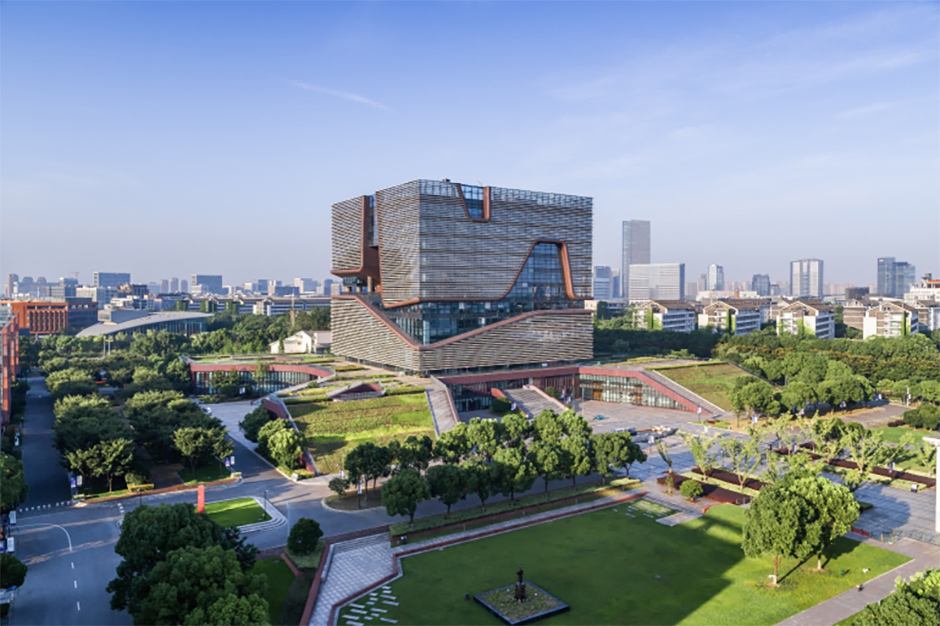
I propose a four-level framework to better understand the new world we are walking into. The first level is phenomena. In an environment full of social issues and challenges, if your interpretation of these phenomena is based only on their face values, your experience might only be negative – a feeling of helplessness in the face of complex issues or a sense of frustration, disappointment and even anger after being subject to intense pressure. The second level is the pattern and system. If you are able to see through the underlying patterns and systemic causes of the phenomena, you will be less likely to be caught off guard. The third level is what I refer to as social thinking and cognitive paradigms, the mastery of which will enable you to integrate with your surroundings with ease and comfort. The final level consists of philosophy and the mind. Transforming into a better version of yourself, cultivating a mindset appropriate to facing an ever-changing world, and acquiring the knowledge and skills you need will set you on a path for success in the new era.
We can learn by following history’s lessons. Let’s take a look into the past using the four-level framework we have just discussed. The 20th century was a tumultuous period in history, with World War I, World War II and the Cold War affecting society and people from all walks of life, triggering a great ideological debate about how the world should be perceived. In terms of systems, the economists Lange and Mises represented two sides of the arguments about the merits and flaws of a planned economy versus a market economy; on cognition and mechanism, Harvard professors Rawls and Nozick initiated a host of discussions on social ideals and systems of equality, justice and common welfare; with respect to philosophy and the mind, Sartre and Aron led the great debate on ideology and religion. While these three philosophical conflicts appeared to have been ideological debates, they have had lasting impacts affecting all aspects of the world and the destiny of countless people.
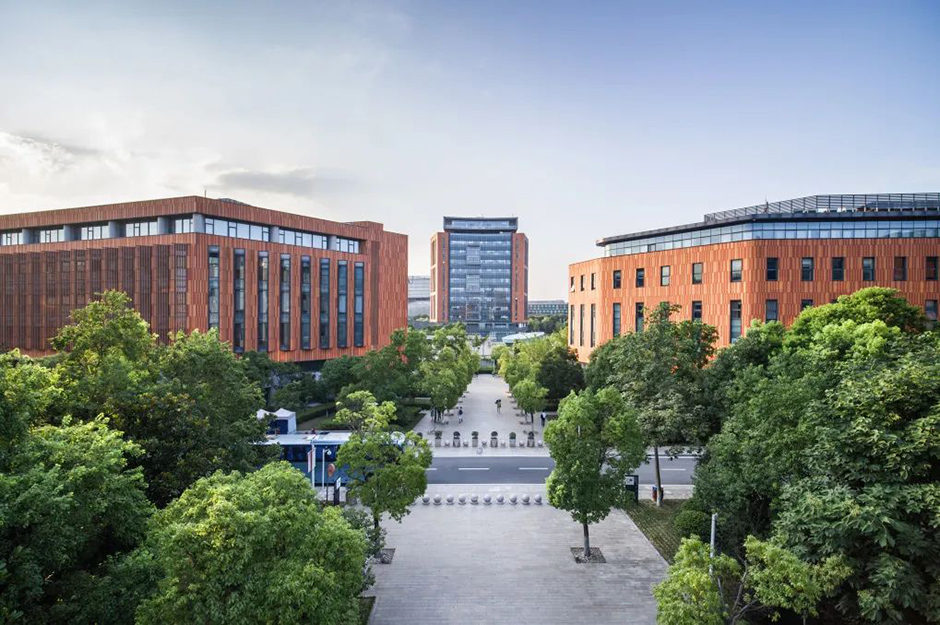
In the 21st century, history seems to have started a new cycle with a different dimension, yet mankind remains embroiled in challenges and confusion. Today, the spread of viruses, global warming, disruption of supply chains, deglobalisation, and a fragmenting world are merely phenomena. Underneath these phenomena is the competition between the governance systems of the East and the West; the competition between capitalism and socialism; the great struggle among the concepts of nationalism, populism and the community with a shared future.
In a world with deep division and chaos, applying the four-level framework to analyse China’s development trajectory offers us critical insight into China’s path. Although ideological and conceptual debates remain intense, the development of modern networks and digital and intelligent technologies constantly strengthens links across borders, making the world a global village where you and I share, coexist and compete all at the same time. In the face of unprecedented changes, we need to look beyond the surfaces of national populism, anti-globalisation, global supply chain disruptions, wars and confrontations that have arisen in recent years. We need to dig deeper to analyse the various models driving them and the mechanics that support those models. Only then will we be able to fully comprehend concepts such as “community with a shared future” and “common prosperity”. I believe the foundation of these concepts is built on the philosophical notion of "unity of heaven and mankind”, which is unique to the Chinese civilisation.
Eastern wisdom, since ancient times, has been adept at viewing the world with a holistic view. The unity of heaven and mankind emphasises reaching the spiritual realm of "universe as one" through cultivation of the mind. In the past, this was merely an aspiration, but technological progress has made integration an inevitable trend, quickly becoming a realistic social paradigm. People can break through physical boundaries and collaborate virtually, turning philosophical consciousness into reality while laying the foundation for the “community with a shared future”.
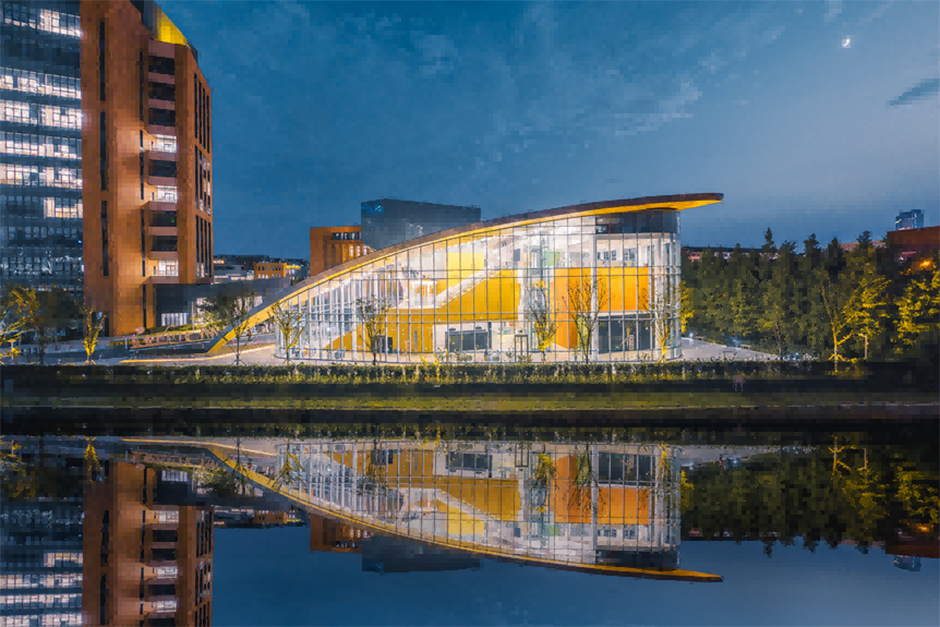
Let’s shift our attention to individuals. Having withstood the tests and challenges of the pandemic over the last three years, I believe everyone has a new perception of life and the world. If we inspect life today and beyond through the lens of this four-level framework, our understanding and perceptions will change fundamentally, prompting innovations as well as wiser decision-making. Wang Guowei, a master of Chinese studies, once described the three realms of life. The first realm is a state of mind seeking solitude, maintaining a sense of objectivity and tranquility amid chaos and disruption; the second realm is to identify trends, and persist in the pursuit of personal goals; and finally, the third realm of life is to enter a state of enlightenment, transcending all of the constraints imposed by the mundane world. While many are familiar with Three Realms, it is rather difficult to implement in practice. Using the four-level framework I propose, when facing challenges we need to stay calm, think, and then see through to the real issues. From that point on, we can identify patterns and seek truth, be persistent and perseverant in achieving our goals, and then finally reach the stage of enlightenment and the highest version of ourselves. I hope that through this self-evolving process, each one of us can finally understand and make real in our lives the XJTLU philosophy of pursuing a "happy life and successful career".
Over the past twelve months, a series of major initiatives have been implemented at XJTLU. The University has achieved remarkable results in teaching, research and development, and the buildout of our industry ecosystem. The Extended Study Scheme, which supports students in their self-directed learning, has been successfully implemented; the University's operation support systems have been continuously improved and optimised; the XJTLU Entrepreneur College (Taicang) campus was officially opened in September of this year; and ground was broken for XJTLU Wisdom Lake Academy of Pharmacy’s new building. Furthermore, the quantity and quality of postgraduate education has developed and improved rapidly; the University has increased its support for research; we have continued to strengthen the development of all our staff and improved the quality of service; and despite all the challenges, we have successfully maintained and strengthened XJTLU’s internationalisation efforts. The list goes on and on.
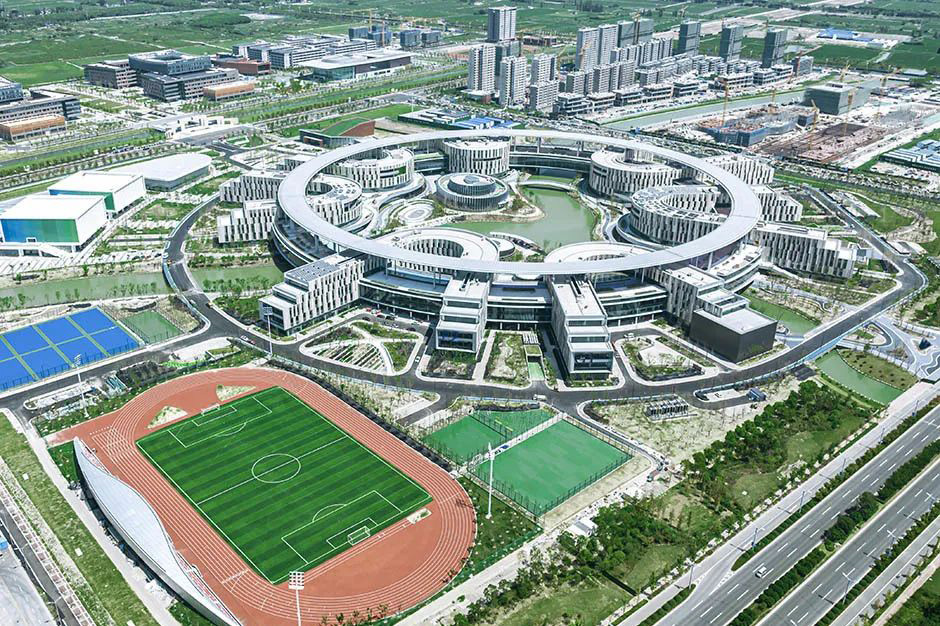
XJTLU not only stood strong against the challenges presented by an extraordinary pandemic, but also managed to navigate the obstacles and emerge even stronger. We were able to achieve this due to the depth and breadth of the capabilities we developed over 16 years, as well as having the right strategy and positioning, with a deep understanding of the complexities and intricacies of the world we find ourselves in. I firmly believe that to realise our vision, having effective leadership, flexible and nimble organisation at all levels, dedication and wisdom from faculty and students, and support from alumni, parents, and friends in the wider community are absolutely critical.
With the new year on the horizon, let us ponder and reflect on what we have set out to do, joining hands in writing a new chapter for XJTLU and for our respective lives and careers.
Members of academic staff, colleagues, students, alumni, parents and friends of the XJTLU community, thank you again for accompanying us on this journey. We look forward to an exciting 2023. Merry Christmas and Happy New Year!
Professor Youmin Xi
Executive President, XJTLU
Pro-vice-chancellor, University of Liverpool
22 Dec 2022
RELATED NEWS
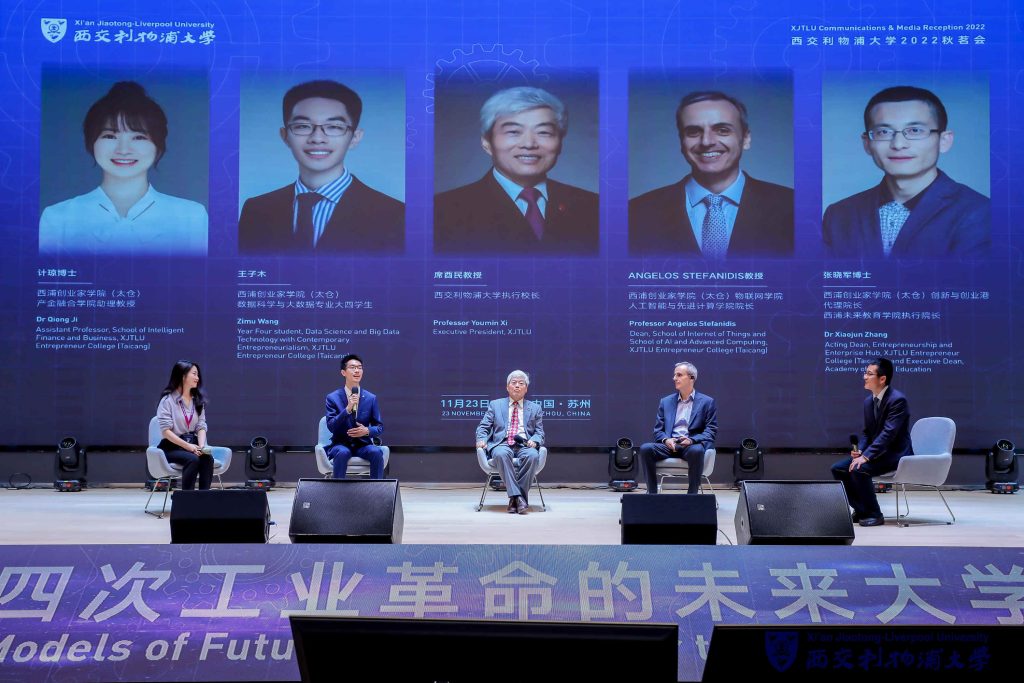
Can universities keep up with the fourth industrial revolution?
Years ago, when the Department of Translation and Interpreting was still under preparation, Professor Youmin Xi, Executive President of Xi’an Jiaotong-Liverp...
Learn more
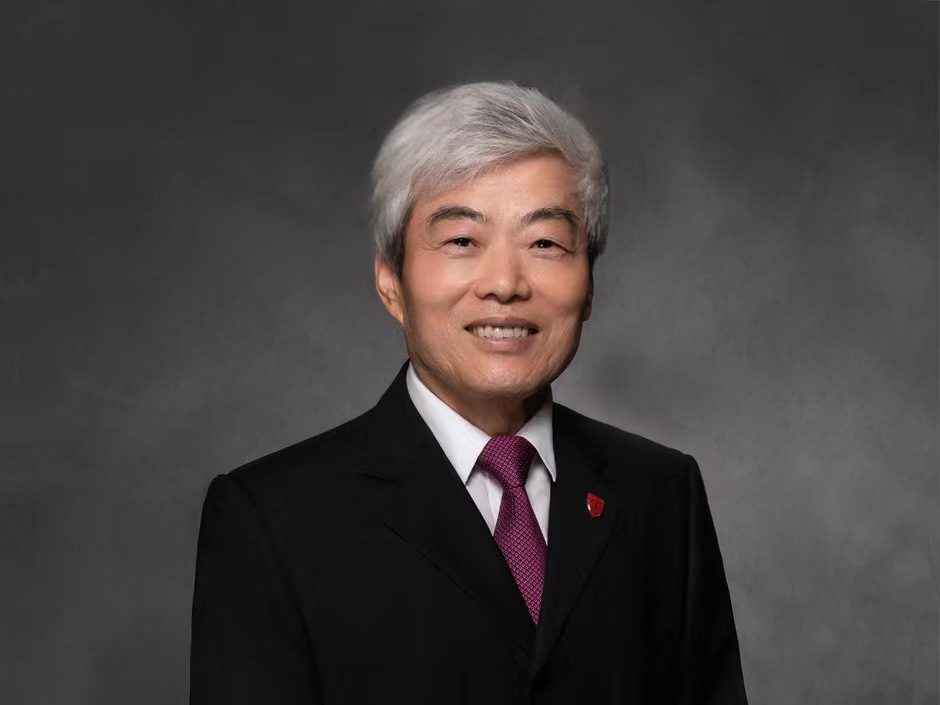
Professor Xi speaks at THE World Academic Summit
Earlier this month, Professor Youmin Xi, Executive President of Xi’an Jiaotong-Liverpool University, spoke at the Times Higher Education (THE) World Acad...
Learn more
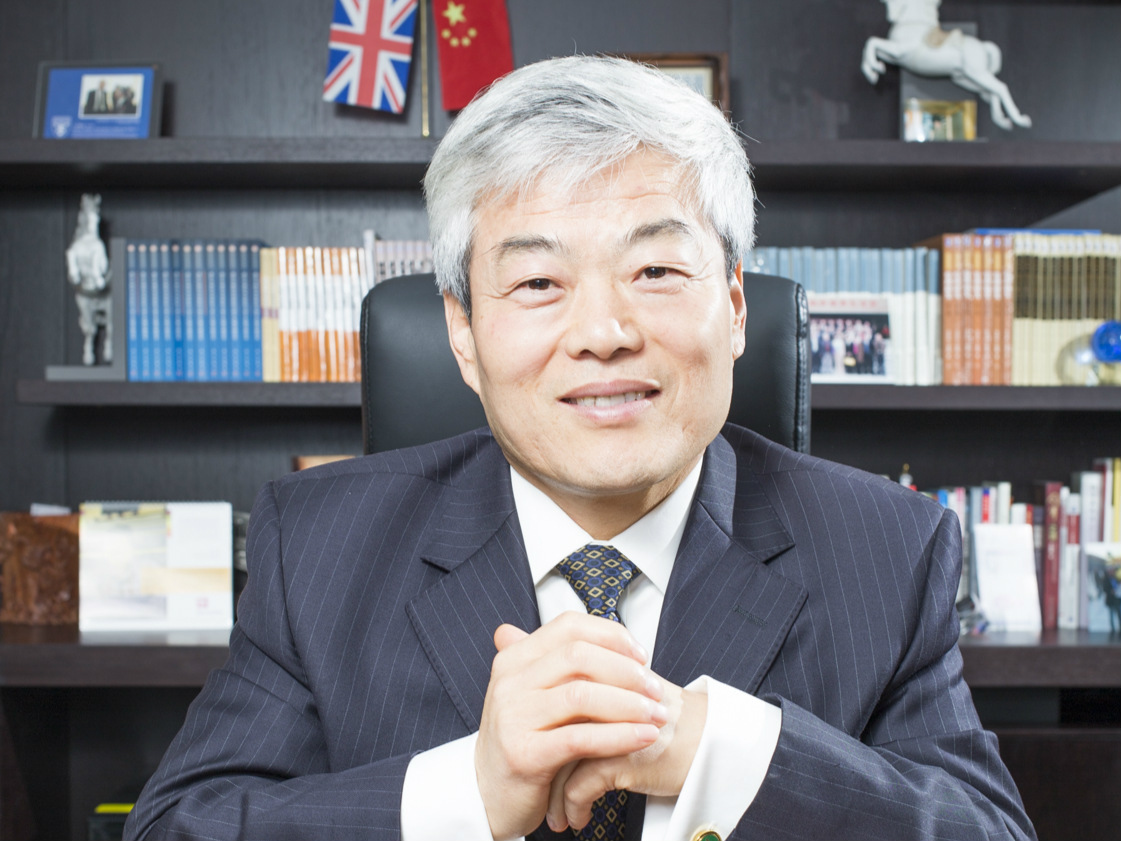
Soar up into the sky like a dragon or a phoenix
SOAR UP INTO THE SKY LIKE A DRAGON OR A PHOENIX Welcome Letter from the Executive President Dear students, colleagues, parents, alumni and friends: Firs...
Learn more




